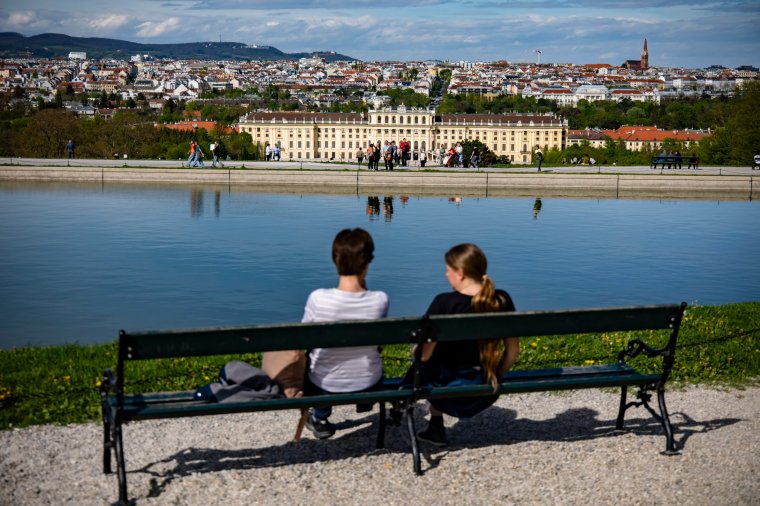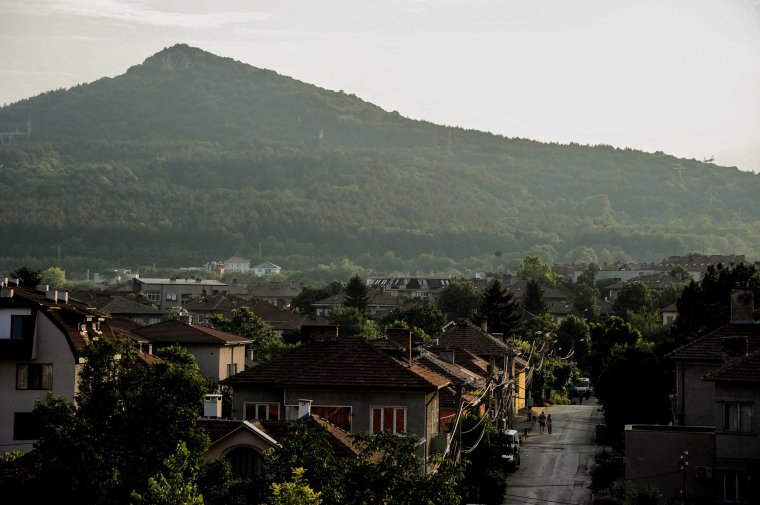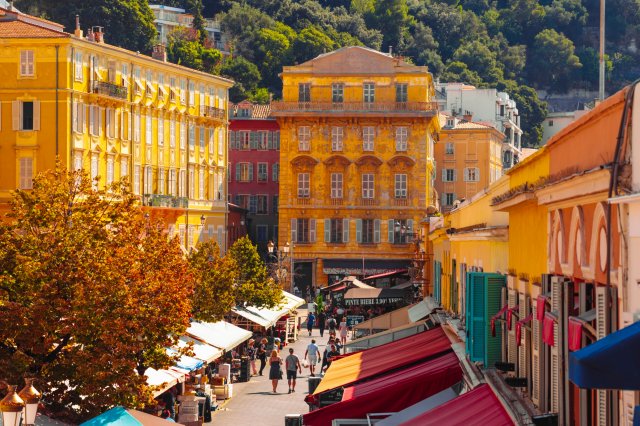A slow, budget alternative to the original Venice–Istanbul Orient Express
5 min read“Your husband is looking for you,” comes the announcement aimed at a disorientated fellow traveller. It perfectly illustrates the slightly confusing nature of this train.
Instead of ornate luxury, there’s navy-blue , diesel powered carriages. Oddly, my ticket specified ÖBB, Austria’s national line, not Romania’s CFR. And, in place of electronic boards specifying the destination, and stops, each carriage door has a sheet of paper taped to the window showing only Wien (Austria) Hbf. I hoped that it, was, in fact going to Budapest.
Another announcement snaps me out of my confusion, as “Budapest-Keleti” is heard over the speakers of the cosy compartment I have to myself.
I have had two-and-a-half slow days in Vienna. They were days filled with the works of Klimt and Bruegel, with museums, the Hofburg and its butterfly house, Baroque churches and apple strudel at Schönbrunn Palace.
After all this indulgence, it feels fitting that my journey to Istanbul should be done in style. However, with a 2023 prices on the Venice-Simplon Orient Express journey from Paris to Istanbul having started at £21,000 per passenger for a twin cabin, a £45 ticket for my first leg eastward sounds like a more cost-effective, and convenient plan.

I’m recreating part of the original Orient Express route between France and Turkey. And, with Vienna and Budapest separated by a three-hour railway journey, it’s easy to catch a connection between the two cities.
I take time to admire the buzzards and glinting Hungarian wetlands outside the window until I arrive in Budapest. Without having to stick to the schedule of the Venice-Simplon Orient Express (on which guests are given a pre-arranged itinerary of activities, with set times for meals), a long evening dip in the Széchenyi Thermal Baths proves to be the perfect balm to the aches of the slow traveller.
I’ve given myself two full days in this Danube-straddling capital. It is enough time for the Disneyesque Fisherman’s Bastion, Buda Castle, Országház (Hungary’s parliament), and Central Market Hall (stacked with cheeses, salamis, chimney cakes and paprika) to be given the slow reverence they require. Meanwhile, Goulash and Lángos (a deep-fried flatbread) can be demolished with the speed they deserve.

Saving money and daylight compared with the ticket prices and timings of the rail schedule, my journey’s longest leg, to Bucharest, calls for an overnight bus. I part with just €38, wave goodbye to Budapest – its arena lit in the Hungarian tricolour – and expect a long night.
I wake only twice as I dreamlessly roll into Romania. Once is to have my passport stamped – this being the eastern edge of the Schengen Area (Romania became a Schengen member on 31 March) – and again as the sun rises over the Carpathians. With peaks still clad in winter snow and glorious pine forest, it’s a view rich enough to be worth trading that train cabin for a bus seat. The vehicle is full to begin with, but not cramped. Passengers trickle on and off throughout the night, mostly at Brasov.
I check my watch as I arrive at Bucharest. It’s 9:30am. Four hours early. The journey took 12.5 hours. I’m not sure how, but a full day has been given to me to explore.
Bucharest has an old-world feel, and I soak in the sun and charm of the Old City. Yet despite brunch at Bread and Butter (croque madame and a latte) and a night of inexpensive luxury at the NF Palace, this is where more modern travel ends all the way to Turkey. In fact, this is the last time I can even make an advanced booking and I collect my tickets as far as Dimitrovgrad, Bulgaria with trepidation.

At midday I cross the Danube one last time at Giurgiu. There’s a feeling of a frontier.
“This could be a disaster,” says a fellow Istanbul-bound Briton as we spark a conversation once aboard our first Bulgarian train, which is liveried in colourful graffiti. There’s a hesitancy brought about by the slow passport checks.
In the winter period (October–June), no direct train runs between Bucharest and Istanbul, and I had no luck booking onward connections in Romania. With Bulgaria’s international ticketing service operating only within its borders, the sunlit countryside is somewhat soured by the anxiety of it all as we arrive at Gorna Oryahovitsa. Then, my fellow Briton and I find, the last office for booking to Turkey is closed.

With help from an equally stressed German passenger and a godsent young Bulgarian woman to translate, we all finally get some peace.
“At Dimitrovgrad, no problem,” the conductor says as he lights a cigarette and points me onboard, with the reassurance I can buy tickets at a later point. And, as Bulgaria falls into darkness, stress melts away with the sun.
The Sofia-Istanbul Express is my final connection as it screeches into silent Dimitrovgrad near midnight. I purchase my ticket on board. It is around £20, before a supplement of around £4 for a sleeper cabin, as it rolls on for just an hour before final official border checks at Kapikule.

Now, beyond the borders of the EU and stamped into Turkey, I turn in for a comfortable sleep. In the morning, I will wake up at Istanbul’s Halkali station full of the memories of an iconic route travelled slowly. And I will cross the Bosphorus into Asia with far more left in my wallet than if I had opted for the luxury, faster route.
Booking it
Frequent rail services run between Vienna Hbf and Budapest-Keleti stations, available at thetrainline.com from £41 one-way. Cheaper services run between less central Vienna Meidling and Budapest Kelenföld stations.
FlixBus offer five daily buses from Budapest to Bucharest starting at £33.99, flixbus.co.uk
The Sofia-Istanbul Express runs once daily, year-round, railturkey.org/travel/trains/international/sofia.
The Bosphorus Express is a summer-only service that connects Bucharest to Istanbul Halkali without the need to change trains in Bulgaria. It can be booked in person at Bucharest Gara de Nord station between June and October or via bileteinternationale.cfrcalatori.ro/ro/booking/search. For more information, see interrail.eu/en
Connecting trains in the winter period (October to June) run from Bucharest Gara de Nord to Dimitrovgrad once daily, with tickets from 160lei (£27) 2nd class. They can be booked online, bileteinternationale.cfrcalatori.ro




